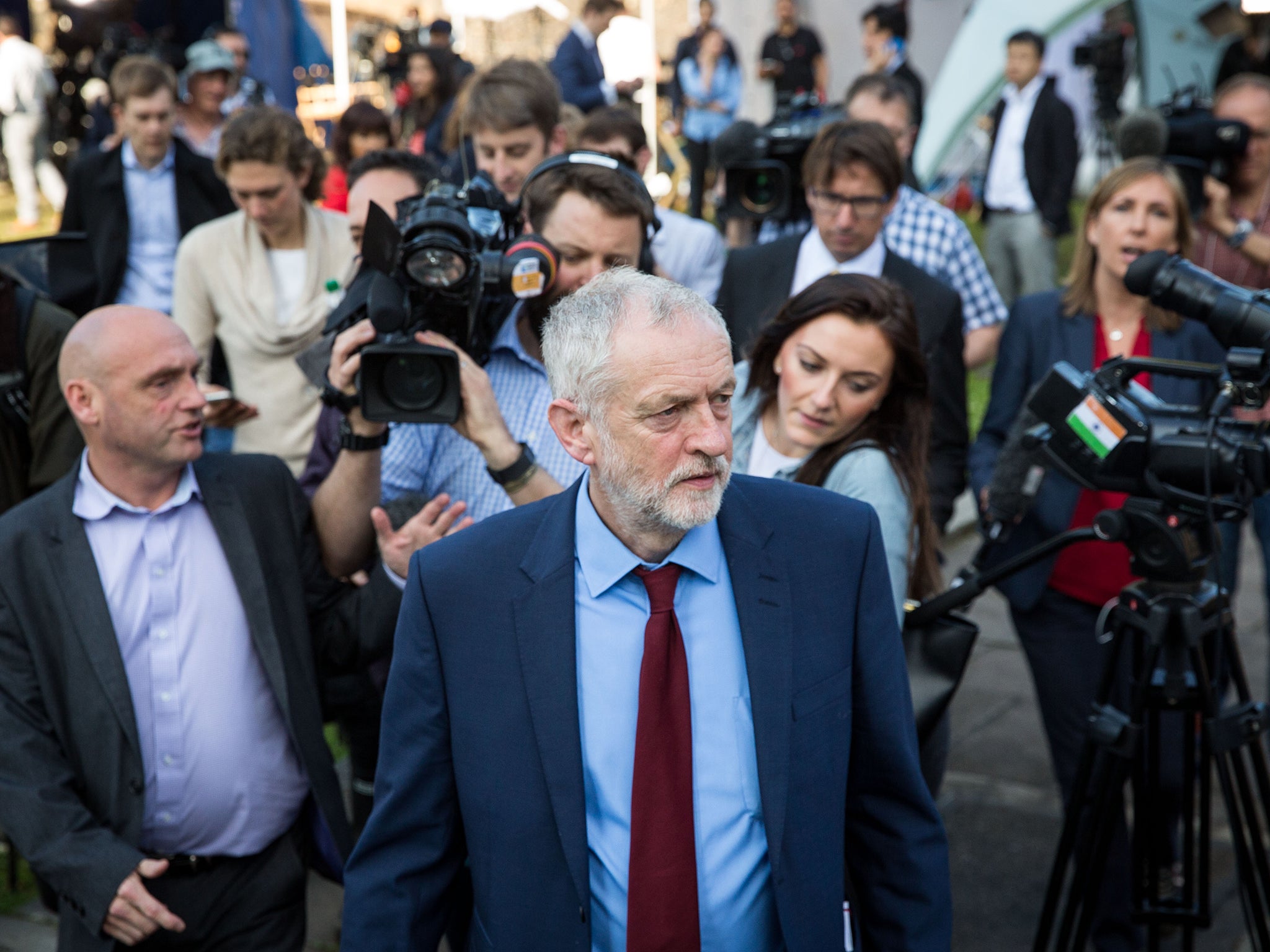Jeremy Corbyn pledges to change Labour’s policy on immigration after Brexit vote
The Labour Party leader says the party cannot “duck the issue” of immigration

Your support helps us to tell the story
From reproductive rights to climate change to Big Tech, The Independent is on the ground when the story is developing. Whether it's investigating the financials of Elon Musk's pro-Trump PAC or producing our latest documentary, 'The A Word', which shines a light on the American women fighting for reproductive rights, we know how important it is to parse out the facts from the messaging.
At such a critical moment in US history, we need reporters on the ground. Your donation allows us to keep sending journalists to speak to both sides of the story.
The Independent is trusted by Americans across the entire political spectrum. And unlike many other quality news outlets, we choose not to lock Americans out of our reporting and analysis with paywalls. We believe quality journalism should be available to everyone, paid for by those who can afford it.
Your support makes all the difference.Jeremy Corbyn has pledged to change Labour’s policy on immigration as a result of Britain’s decision to leave the European Union, but has warned against the emergence of “nasty and divisive” politics that blames immigrants for social problems.
Facing pressure to stand down over his handling of the EU referendum, Mr Corbyn said the party could not “duck the issue” of immigration and acknowledged that Britain’s vote for Brexit, backed by many Labour voters, represented a “backlash” against EU freedom of movement rules.
In a speech in London on Saturday, the Labour leader said he was “not afraid” to talk about immigration, signalling that Labour’s new approach would seek to support communities hit by high levels of migration with extra government support.
However, he did not set out where the party would stand on the issue of freedom of movement.
Despite claiming that a vote to leave would allow Britain to take control of immigration, Vote Leave campaigners have since suggested some form of free movement of labour could emerge from Britain’s new relationship with EU.
Former Labour leadership hopeful and Remain campaigner Chuka Umunna has said it would now be “inconceivable” for freedom of movement to be part of the new settlement after it was rejected by the electorate. Labour’s deputy leader Tom Watson has also called for reform.
Mr Corbyn said it was communities, often in former industrial heartlands, that had tended to vote for Brexit.
“Across many parts of Britain there’s a feeling of powerlessness. Communities that have been abandoned, from the mining industry’s destruction onwards…a Sports Direct factory on the site of a former mine says it all about the employment strategy of modern Britain,” he said.
“Those communities have taken the full force of austerity and government economic failure,” he added.
He said that the referendum had revealed a “very divided Britain”, with London and Scotland backing Remain, while all Wales and all other English regions backed Brexit.
“The Tories’ choice to make deprived communities pay for the crisis not of their making has opened the door to a very nasty, divisive form of politics in this country,” he said.
“That divisive politics has sought to blame immigrants not government – government that has let industries go to the wall, that has failed to invest, that has deregulated the labour market and turned a deaf ear to the communities that have been left behind.”
He said that migration had enriched the country, but that he understood that it could cause “tensions and strain on services”, as he reiterated Labour’s commitment to restore the migrant impact fund – targeted government support for areas with high migration – which was introduced by Gordon Brown and scrapped by the Coalition government.
“Our policies on trade, the economy, and migration will change in light of the referendum vote … but that cannot be left to the likes of Johnson, Farage and Gove,” he said.
“Labour will fight to ensure our agenda … is at the heart of the negotiations over our withdrawal from the European Union that lie ahead.”
Join our commenting forum
Join thought-provoking conversations, follow other Independent readers and see their replies
Comments